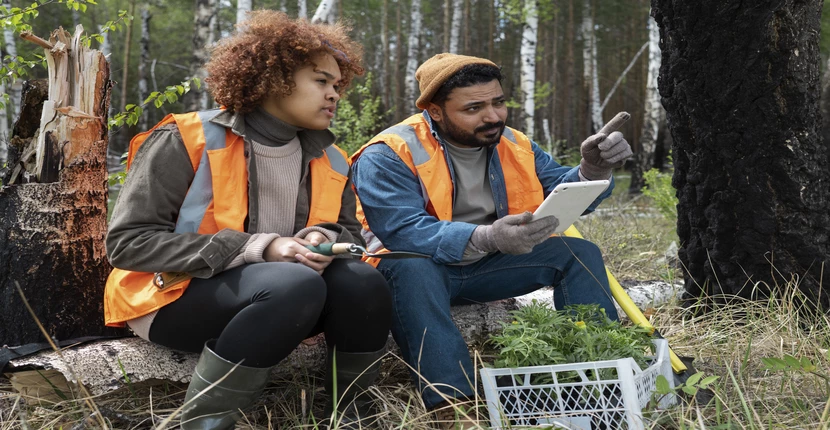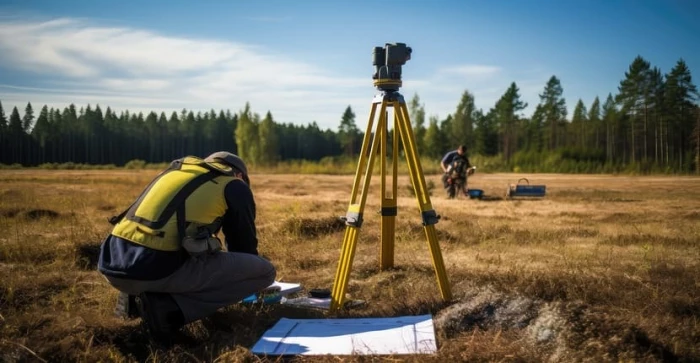
Phase 1 Habitat Survey in Fulwood
Request a free quote for expert phase 1 habitat assessments todayAt Invasive Weed, we specialise in Phase 1 Habitat Surveys in Fulwood to support planning applications, land development, and conservation projects while ensuring compliance with UK wildlife protection laws.
A phase 1 habitat survey is the first step in identifying habitat types, assessing ecological constraints, and determining the potential presence of protected species in Fulwood. This survey is a key requirement for developers, landowners, and planning authorities to ensure that projects proceed responsibly and in accordance with environmental regulations.
Our team of qualified ecologists conducts thorough habitat mapping, flora and fauna assessments, and species potential evaluations to provide detailed ecological insights.
For a phase 1 habitat survey in Fulwood and across the UK, contact us today for a consultation.
What Is the Phase 1 Habitat Survey Process?
The phase 1 habitat survey process begins with an initial consultation & desktop study, where existing ecological and environmental data is reviewed to understand the site’s ecological history and nearby protected areas.
The next step is the on-site field survey, during which ecologists conduct walkover assessments, document habitat classifications, and identify any potential ecological constraints. Following this, the data collection & mapping stage involves creating detailed habitat maps that illustrate the extent and distribution of habitat types across the site.
The final stage is the report & recommendations, where findings are compiled into a comprehensive ecological report, providing guidance for planning applications, potential ecological impacts, and further survey requirements.
What Does a Phase 1 Habitat Survey Include in Fulwood?
A phase 1 habitat survey includes habitat mapping, biodiversity assessment, protected species evaluation, invasive species identification, and ecological recommendations in Fulwood.
These surveys also include:
Site walkover & habitat mapping in Fulwood – Identifies and categorises habitat types such as grasslands, woodlands, hedgerows, and wetlands.
Flora & fauna assessment in Fulwood – Records plant and animal species to evaluate the site’s biodiversity value.
Protected species potential assessment in Fulwood – Evaluates the likelihood of legally protected species such as bats, badgers, great crested newts, nesting birds, and reptiles being present.
Invasive species identification in Fulwood – Checks for non-native and invasive plant species like Japanese Knotweed and Himalayan Balsam that may require specialist management.
Ecological constraints & recommendations in Fulwood – Advises on further surveys or mitigation measures to ensure legal and environmental compliance.

How Much Does a Phase 1 Habitat Survey Cost in Fulwood?
Phase 1 habitat survey costs range from £500 to £3,500+ in Fulwood, depending on site size, complexity, and additional ecological requirements.
For small residential sites, costs typically range from £500 to £1,500 in Fulwood, while larger commercial and industrial developments may require more detailed assessments, with costs between £1,500 and £3,500 in Fulwood.
Additional expenses may arise if protected species surveys, follow-up assessments, or mitigation plans are needed, with prices varying based on the specific ecological requirements of the project.
Contact Invasive Weed in Fulwood to get customised pricing for phase 1 habitat survey projects in targeted biodiversity.
Is a Permit Required for a Phase 1 Habitat Survey in Fulwood?
A phase 1 habitat survey does not usually require a permit in Fulwood, but further ecological surveys, such as protected species assessments, may require additional licensing.
In many cases, a phase 1 habitat survey is required under UK and international laws, such as the Wildlife and Countryside Act 1981 and the Habitats Regulations 2017 in Fulwood, that require developers to assess and mitigate potential impacts on biodiversity before proceeding with construction.
Landowners and developers are responsible for ensuring full compliance with ecological regulations in Fulwood, and failure to do so may result in planning delays, fines, or legal action.
How Long Does a Phase 1 Habitat Survey Take in Fulwood?
A phase 1 habitat survey takes one to several weeks, depending on site size, complexity, and seasonal factors in Fulwood.
For small sites, the survey can be completed within one to two weeks, while larger or more complex sites may take several weeks in Fulwood to fully assess. The best time to conduct habitat surveys is during the growing season in Fulwood (April to September), when plant species are most easily identifiable.
What Are the Environmental Considerations in a Phase 1 Habitat Survey in Fulwood?
A phase 1 habitat survey approach focuses on minimising environmental impact in Fulwood, incorporating mitigation strategies such as habitat restoration, ecological buffer zones, and wildlife-friendly development plans.
We also help developers comply with sustainability goals and environmental regulations in Fulwood, ensuring that projects align with biodiversity net gain principles and contribute to long-term ecological resilience.
By integrating environmentally responsible strategies into site development, we support both conservation efforts and responsible land use.
Contact Invasive Weed in Fulwood to get detailed information on the phase 1 habitat surveys in targeted biodiversity.
We cover Fulwood (Lancashire)
